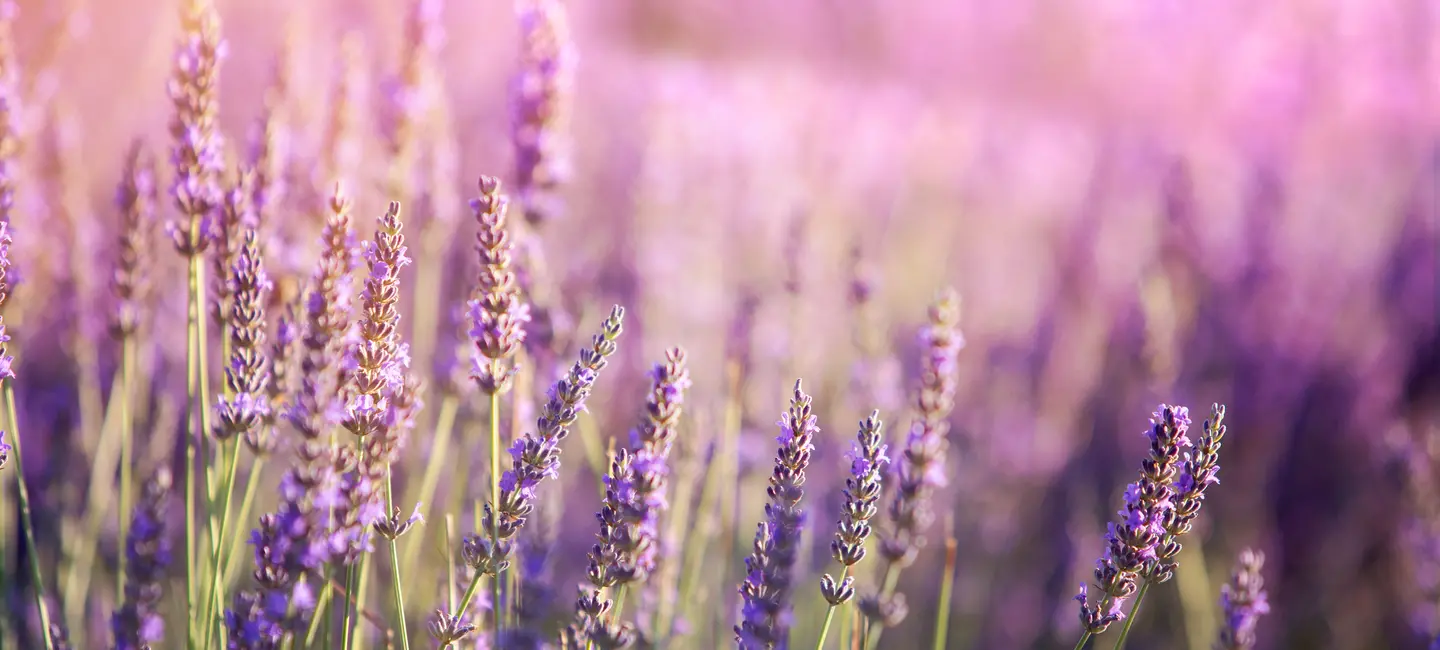
Lavender (Lavandula angustifolia) is an evergreen plant native to the Mediterranean. Its flower and oil have a popular scent and are also used as medicine.
Lavender contains an oil that seems to have calming effects and might relax certain muscles. It also seems to have antibacterial and antifungal effects.
People commonly use lavender for anxiety, stress, insomnia, depression, dementia, pain, and many other conditions, but there is no good scientific evidence to support many of these uses.
Is It Effective?
NatMed Pro rates effectiveness based on scientific evidence according to the following scale: Effective, Likely Effective, Possibly Effective, Possibly Ineffective, Likely Ineffective, Ineffective, and Insufficient Evidence to Rate.
- Anxiety. Taking a specific lavender oil supplement (Silexan) by mouth seems to help relieve anxiety. Using lavender oil aromatherapy or aromatherapy massage also seems to help.
- Depression. Taking lavender products by mouth, including teas and a specific oil supplement (Silexan), or inhaling lavender oil as aromatherapy, seem to reduce symptoms of depression.
- Menstrual cramps (dysmenorrhea). Lavender oil aromatherapy seems to help reduce menstrual pain.
- Pain in people with cancer. Using lavender oil aromatherapy with massage doesn't seem to reduce cancer-related pain more than a massage without aromatherapy.
There is interest in using lavender for a number of other purposes, but there isn't enough reliable information to say whether it might be helpful.
Is it Safe?
When taken by mouth: Lavender is commonly consumed in foods. It's possibly safe when taken as medicine. Side effects might include constipation, diarrhea, and headache.
When applied to the skin: Lavender is possibly safe. It's usually well-tolerated, but can sometimes cause skin irritation.
When inhaled: Lavender essential oil is possibly safe. It's been used safely as aromatherapy for up to 12 weeks.
Special Precautions & Warnings:
Pregnancy and breast-feeding: There isn't enough reliable information to know if lavender is safe to use when pregnant or breast-feeding. Stay on the safe side and avoid use.
Children: Lavender essential oil is possibly safe when inhaled as aromatherapy. But applying products that contain lavender oil to the skin is possibly unsafe for young males who haven't reached puberty. Lavender oil seems to have hormone-like effects that could disrupt normal hormones. In some cases, this has resulted in breast growth. There isn't enough reliable information to know if lavender is safe for children to take by mouth.
Surgery: Lavender might slow down the central nervous system. If used with anesthesia and other medications given during and after surgery, it might slow down the central nervous system too much. Stop using lavender at least 2 weeks before a scheduled surgery.
Sedative medications (CNS depressants)
Interaction Rating=Moderate Be cautious with this combination.
Lavender might cause sleepiness and slowed breathing. Some medications, called sedatives, can also cause sleepiness and slowed breathing. Taking lavender with sedative medications might cause breathing problems and/or too much sleepiness.
Herbs and supplements that might cause sleepiness: Lavender might cause sleepiness and slowed breathing. Taking it along with other supplements with similar effects might cause too much sleepiness and/or slowed breathing in some people. Examples of supplements with this effect include hops, kava, L-tryptophan, melatonin, and valerian.
There are no known interactions with foods.
Lavender is used in many different types of products. A specific lavender oil product (Silexan) has most often been used by adults in doses of 80-160 mg by mouth daily for up to 10 weeks. Lavender essential oil is commonly used in aromatherapy and various topical products such as massage oils and lotions. Speak with a healthcare provider to find out what type of product and dose might be best for a specific condition.
Alhucema, Common Lavender, English Lavender, French Lavender, Garden Lavender, Huile Essentielle de Lavande, Lavanda, Lavande, Lavande à Feuilles Étroites, Lavande Anglaise, Lavande Commune, Lavande des Alpes, Lavande du Jardin, Lavande Espagnole, Lavande Fine, Lavande Française, Lavande Officinale, Lavande Vraie, Lavandula, Lavandula angustifolia, Lavandula dentate, Lavandula latifolia, Lavandula officinalis, Lavandula pubescens, Lavandula spica, Lavandula stoechas, Lavandula vera, Lavender Essential Oil, Ostokhoddous, Spanish Lavender, Spike Lavender, True Lavender.
Information on this website is for informational use only and is not intended to replace professional medical advice, diagnosis, or treatment. While evidence-based, it is not guaranteed to be error-free and is not intended to meet any particular user’s needs or requirements or to cover all possible uses, safety concerns, interactions, outcomes, or adverse effects. Always check with your doctor or other medical professional before making healthcare decisions (including taking any medication) and do not delay or disregard seeking medical advice or treatment based on any information displayed on this website.
© TRC Healthcare 2024. All rights reserved. Use and/or distribution is permitted only pursuant to a valid license or other permission from TRC Healthcare.
